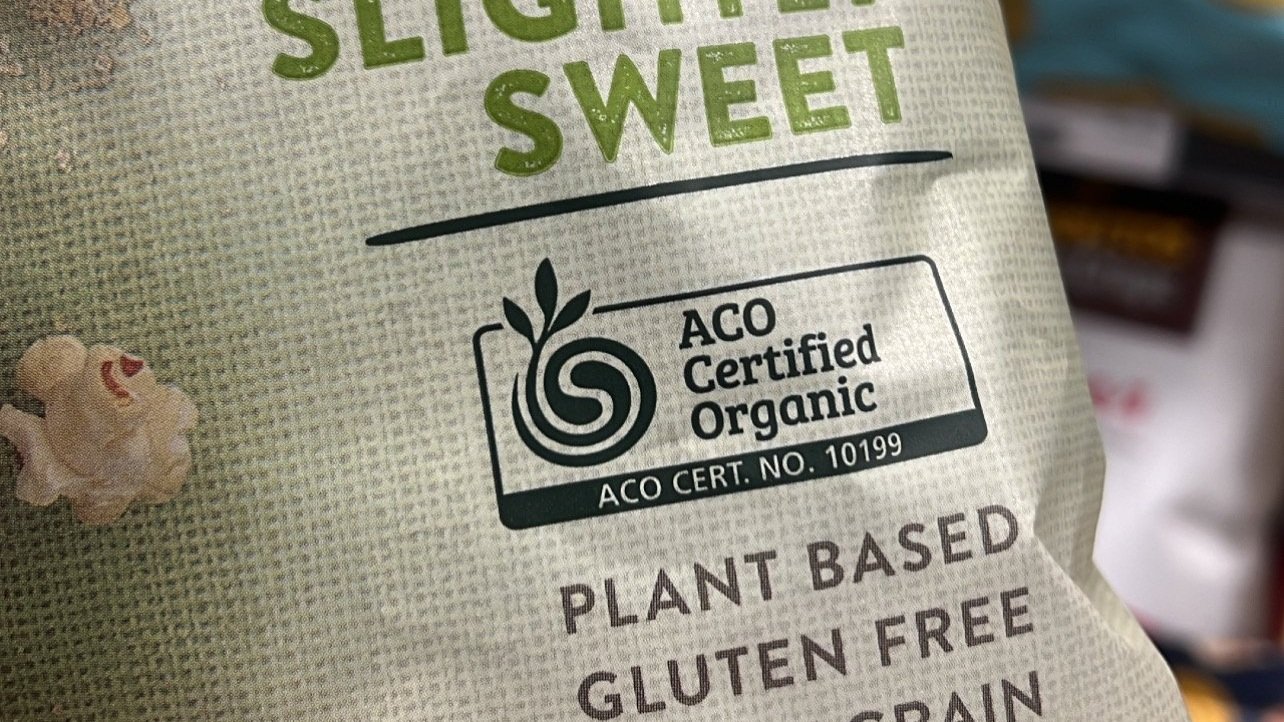
WHY ORGANIC?
LOOKING BEYOND THE LABEL THIS AUSTRALIAN
ORGANIC AWARENESS MONTH
SETPEMBER, 7 2023
There are many reasons why food shoppers make the switch to organic products, with more and more Australians choosing to become a part of the organic movement. The recently released Australian Organic Market Report 2023 states that broad cultural change is driving preference for organic products, with factors like health, sustainability, environmental benefits and animal welfare all considered important to consumers.
Industry peak body Australian Organic Limited (AOL) is committed to promoting the many benefits of organic systems while protecting the industry from greenwashing and false organic claims. As Australia is one of very few countries without an enforced regulatory standard of the word ‘organic’, unscrupulous businesses can make organic claims on their products even if they contain as little as two per cent organic ingredients.
This is why organic certification is so important to the growth of our vital industry. Each September, AOL holds Australian Organic Awareness Month to promote certified organics and celebrate the businesses, retailers and shoppers that underpin the sector.
The theme of this year’s AOAM is Why Organic? What are the benefits for consumers who choose to support the certified organic industry during their weekly shop?
CERTIFIED ORGANIC IS TOXIC PESTICIDE AND CHEMICAL FREE
Organics are free of synthetic herbicides, toxic pesticides and persistent chemicals. Many of the chemicals detected in non-organic foods can negatively impact human health, even at very low concentrations. Unfortunately, simply washing your non-organic produce is ineffective to remove all traces of pesticides.
“Only 19% of chemicals are removed when washing non-organic strawberries in tap water”
ENVIRONMENTALLY FRIENDLY OUTCOMES
Organic food is produced using sustainable methods that imitate natural ecological processes. These processes do not disrupt ecosystems in the way that synthetic pesticides, herbicides, fertilisers or GMOs may do. Instead, food produced organically helps to reduce the impact of chemical run-off from farms and can lower agricultural greenhouse gas emissions compared to non-organic practices.
A FOCUS ON ANIMAL WELFARE
Under organic livestock standards, animals including poultry, pigs, sheep, goats and cattle must live, grow and breed naturally in group sizes appropriate to their species, with more space to roam compared to their non-organic counterparts.
Using chickens as an example, battery farming or cage farming of hens is prohibited under organic production. Organic poultry have access to pasture and are fed organic grains mixes to complement production.
“No more than 1,500 birds are permitted per hectare for certified organic chickens, whereas non-organic free range can be up to 10,000 per hectare”
SUPPORTING CERTIFIED BUSINESSES
The best method to ensure you are purchasing legitimately organic products is to keep an eye out for certification marks on packaging (such as the ‘Bud’ logo).
“77% of organic shoppers are aware of certification marks.”
Certification marks prove that the business in question has chosen to undertake a rigorous certification process that confirms their output is legitimately organic.
To learn more about the value of an organic lifestyle, including recipes, FAQs and exclusive special offers, make sure you visit budorganic.com.au and sign up to Bud Organic Club for free.
Follow Australian Organic on social media @budorganicclub and tag #AOAM2023, #ChooseOrganic and #WhyOrganic in your posts and share your organic recipes throughout September to be featured on our social media pages.
*Statistics extracted from Australian Organic Market Report 2023 and budorganic.com.au
(Pictured: AOL Organic Awareness Month)
By Australian Organic Limited
First seen in the Seasonal Magazine: Spring 2023
Back to MO Blog page

